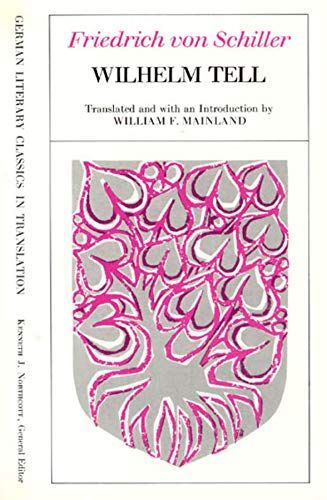
Wilhelm Tell
When Schiller completed Wilhelm Tell as a "New Year's Gift for 1805" he foretold that it would cause a stir. He was right. In the midst of Great Power politics a play which drew substance from one of the fourteenth-century liberation movements proved both attractive and inflammatory. Since then the work as become immensely popular. This new English translation by William F. Mainland brings out the essential tragi-comic nature of Wilhelm Tell but also emphasizes its impressive formal unity. Schiller based his play on chronicles of the Swiss liberation movement, in which Wilhelm Tell played a major role. Since Tell's existence has never been proven, Schiller, a historian by profession, felt he had to devise a figure who would bring the uncertainties and contradictions of the various Swiss chronicles into focus. Respected for his courage and skill with a bow, for his peaceable nature and his integrity, Schiller's archer—while always ready to aid his fellows—habitually seeks solitude. In the midst of political turmoil Wilhelm Tell is the nonpolitical man of action. Keenly interested in the problematic interplay of history and legend, Schiller turned it to be dramatic advantage. He constructed his play to illustrate the greatest possible development of the character traits suggested for Tell by the chronicles. The result of Schiller's supreme achievement in historical drama.
Reviews
Sophie Lindemann@thisissoffi
Leonie Eggert@temperance
Peter Unruh@peterunruh
Ami@tolli
Sara Käfer @in_konsequent
Kolle@brokkoli
Jacqueline Englund@jackiereads
KKK@kandid
Noha Abdelaziz@nouhashawqi
Kaya@kaya_kobold01
Kolle@brokkoli
Lotte Dunnewold@lotted
Katharina Hoffmann@ahobbitsbooks
Sophia Lin@sophlin
Kim Marie@moonkallery
Alexa Probst@alexa_pro
Jay Eff@jayeff
Deanna Kendall@deereads
Mona Witzel@haselhoernchen
Eva@evamaren
Leonie@morallyblack